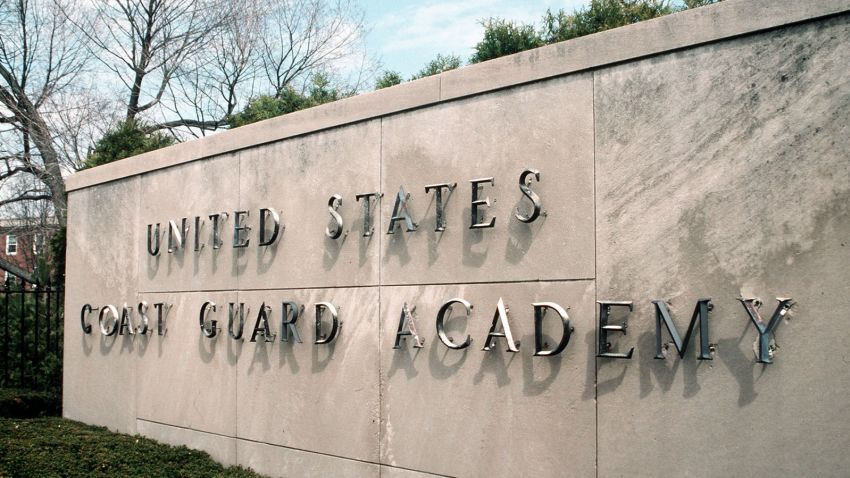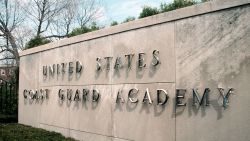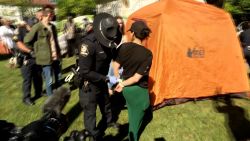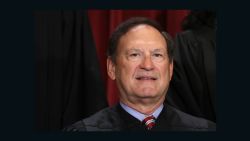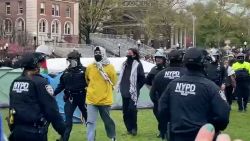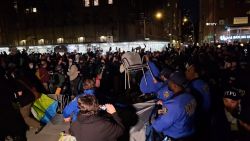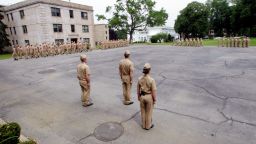A secret investigation into alleged sexual abuse at the US Coast Guard Academy, the training ground for the Coast Guard’s top officers, uncovered a dark history of rapes, assaults and other serious misconduct being ignored and, at times, covered up by high-ranking officials.
The findings of the probe, dubbed “Operation Fouled Anchor,” were kept confidential by the agency’s top leadership for several years. Coast Guard officials briefed members of Congress this month after inquiries from CNN, which had reviewed internal documents from the probe.
Despite credible evidence of assaults dating back to the late 1980s, investigators found that most of the alleged perpetrators were not criminally investigated at the time. Instead, the incidents were handled as administrative violations, and punishments, if they happened at all, were as minor as extra homework or lowered class standings. Sometimes, even those pushed out of the academy were still able to serve in the US military.
As a result, some of the accused ascended to top roles at the Coast Guard and other military agencies.
In contrast, many alleged victims left the academy after reporting their assaults, ending their hopes of a career in the service.
“This investigation made clear that the [school’s] leadership was more concerned at that time about organizational and [Coast Guard Academy] reputation than about the victims of crimes who were members of our service,” a draft of the Fouled Anchor final report from 2019 said.
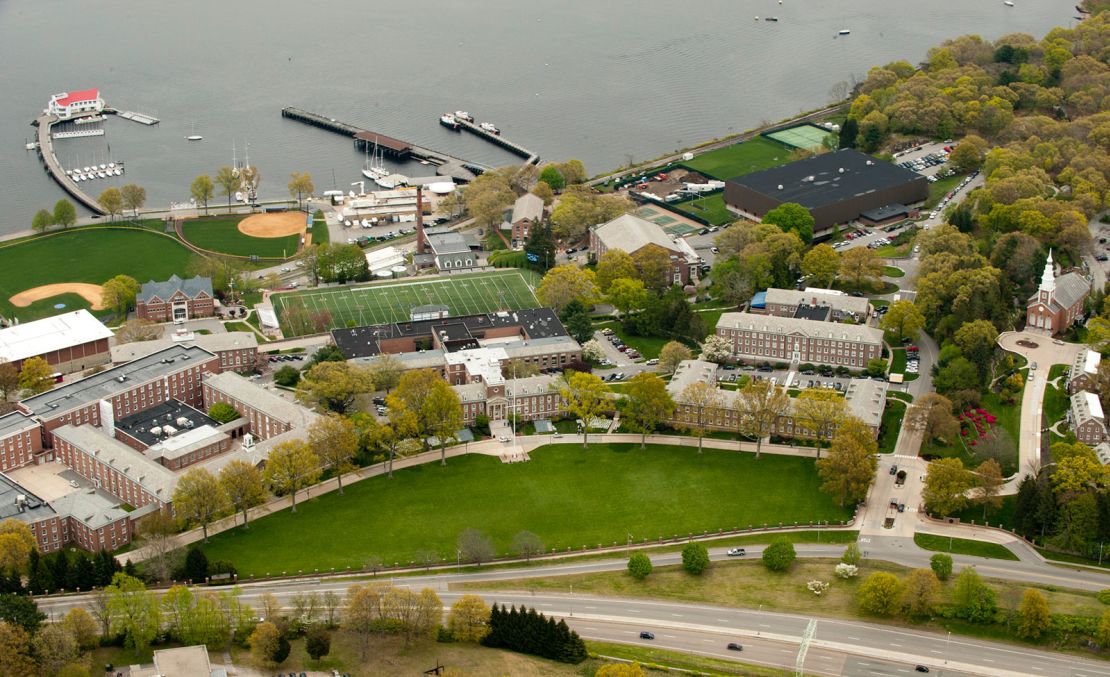
Sexual assault survivors said that what the academy put them through continued to affect their mental health, personal relationships and careers, according to records and interviews with CNN. They detailed suicide attempts, battles with depression and anxiety, emergency room visits and long lists of medications they have used to help them cope with the lingering trauma.
“Whose fault is it that he was still in the (Coast Guard) 20 (years) later? If I’m sounding frustrated it is because I am,” Kerry Karwan, a Coast Guard veteran whose allegations were part of the Fouled Anchor probe, wrote in a 2018 letter she sent to Coast Guard leaders and then-President Donald Trump about her alleged assailant.
“I upheld the Coast Guard Corps Values and an individual that assaulted me and other women retired honorably with higher benefits than I did…We are a service that saves people for a living. I’d like to think our own service members are people worth saving,” Karwan wrote.
The investigation was a historical reckoning of past abuses, but in some ways raises questions about the current culture of the academy and Coast Guard at large. While the agency partially blamed the poor handling of sexual misconduct investigations on outdated views of sexual assault and officials who had left the academy long ago, the Coast Guard continues to struggle to hold suspected sexual predators accountable, as a CNN investigation earlier this year revealed.
Despite findings of wrongdoing against academy officials and former students, Operation Fouled Anchor was quietly closed by agency leaders, many of whom had studied and worked alongside the alleged perpetrators. Two accused perpetrators were discreetly pushed to retire from the Coast Guard, according to internal records reviewed by CNN.
Records show that there were nearly 40 cases where the Coast Guard no longer had jurisdiction over the alleged attackers and local and federal criminal statutes had long run out of time, so no action was taken at all.
The US Coast Guard did not initially respond to CNN’s inquiries about the handling of the probe, but said in a statement provided after publication that the probe was not “disclosed widely at the time.”
“We recognize that transparency is critical to building the trust not only of victims, but all cadets and personnel at the Academy, and we are committed, moving forward, to be open and transparent regarding the outcomes of this process and our efforts to prevent and address this scourge,” the agency said.
The agency also noted that improvements to sexual assault and harassment policies and investigative procedures had been improved in the years that followed the focus of the report.
“The Coast Guard fully recognizes that, by not having taken appropriate action at the time of the sexual assaults, the Coast Guard may have further traumatized the victims, delayed access to their care and recovery, and prevented some cases from being referred to the military justice system for appropriate accountability,” it said. “The Coast Guard owns this failure and apologizes to each of the victims and their loved ones.”
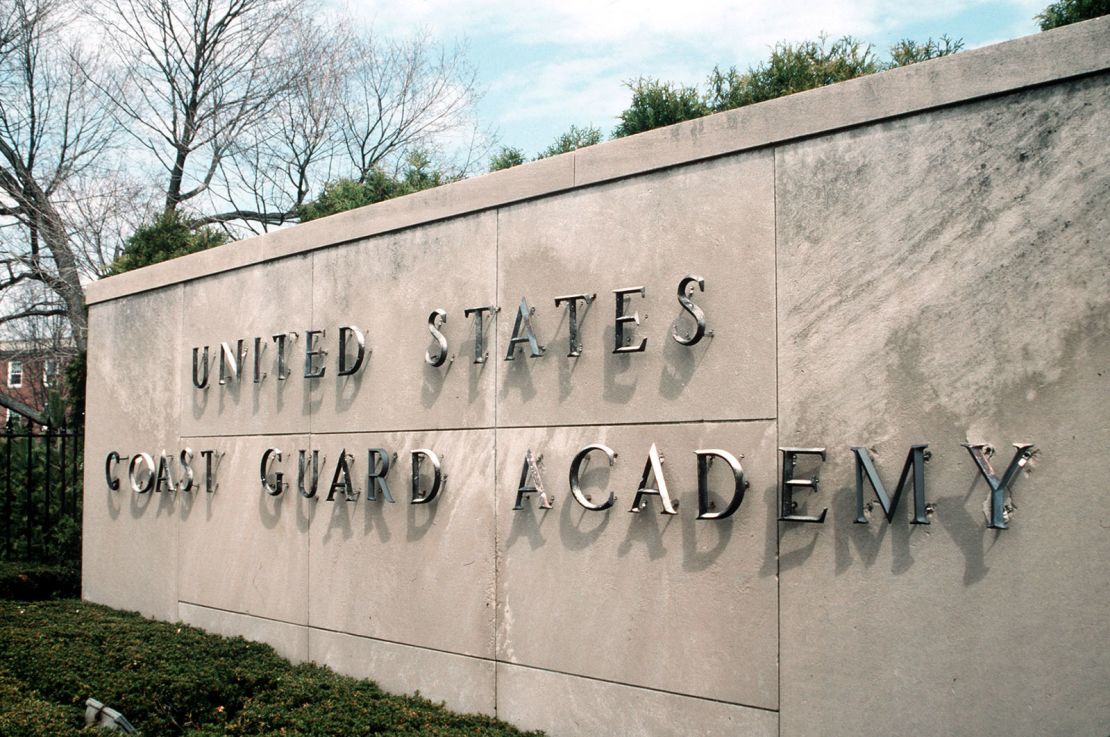
Democratic Sens. Maria Cantwell of Washington state, chair of the Senate Commerce Committee, and Tammy Baldwin of Wisconsin sent a letter to the Coast Guard Friday, questioning why the report had been kept secret, even from those in Congress with oversight authority over the agency. The senators expressed concern that substantiated perpetrators may hold security clearances and that two were allowed to honorably retire with their pensions and veterans benefits intact. They requested additional information to help the committee “determine if the Coast Guard complied with the law and to inform potential legislative actions.”
The senators also questioned whether the Coast Guard failed to use its authority “to appropriately discipline individuals who were investigated and remain (or remained) in the Coast Guard.”
Operation Fouled Anchor, named after a ship’s anchor that has become entangled around itself, was launched in 2014 when an academy graduate claimed that her allegations of rape from years earlier had never been investigated. She said school officials pressured her not to pursue the issue. Her alleged rapist had gone on to be a top officer in the Air Force and was the only person to face criminal charges in military court as a result of the probe, but an appeals court ended up ruling in his favor and dismissing the charges, saying that the military had missed its window to prosecute because the Coast Guard waited nearly two decades to investigate the victim’s allegations.
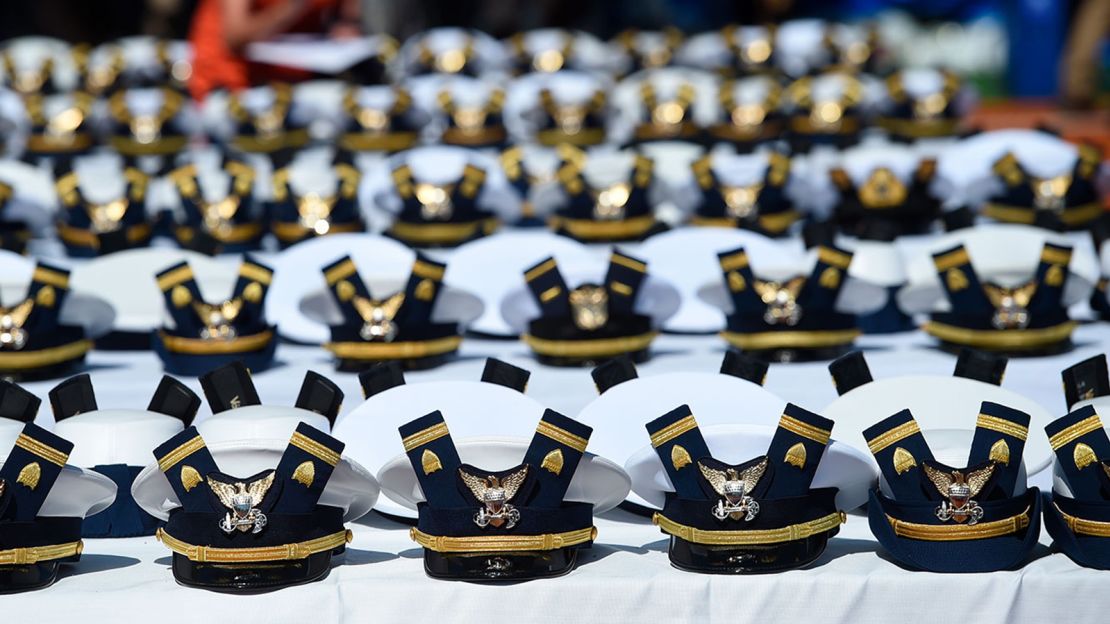
While looking into the woman’s case, agents determined that her allegations and more than two dozen other reports of misconduct had essentially been buried by academy leaders. And as they continued digging, they unearthed more than 90 potential assaults from the late 1980s to 2006. It is unclear from the documents why the probe did not extend to more recent years. Former cadets recounted stories of awakening in the middle of the night only to find classmates on top of them mid-assault. Some reported being assaulted multiple times by different classmates; others described being attacked by the same man. In one case, a victim had allegedly been left with rope marks on her wrists.
In informal briefings to Senate Commerce Committee staff as recently as this week, Coast Guard officials said the investigation had ultimately identified more than 60 substantiated incidents of rape, sexual assault and sexual harassment committed by academy cadets or otherwise that occurred at the academy, according to the senators’ letter.
The investigation, which involved more than 75 agents, hundreds of interviews and nearly 20,000 hours of investigative work, according to records, found that school leaders routinely failed to report serious allegations to law enforcement, intentionally avoiding the criminal justice system.
“There was a disturbing pattern of not treating reported sexual assaults as criminal matters,” the Coast Guard’s draft report reviewed by CNN stated.
In some instances, school officials at the time recommended launching criminal inquiries into alleged assaults only to be overruled by top leadership at the academy, according to records reviewed by CNN.
Documents show how Coast Guard agents cobbled together fragmented pieces of information detailing the academy’s handling of past reports of sexual assault as administrative disciplinary matters.
Many documents about the alleged assaults were shredded long ago. Agents resorted to flipping through old yearbooks and other student records to track down suspects and victims referenced by only their last names and class ranks in the limited records they did receive from academy officials.
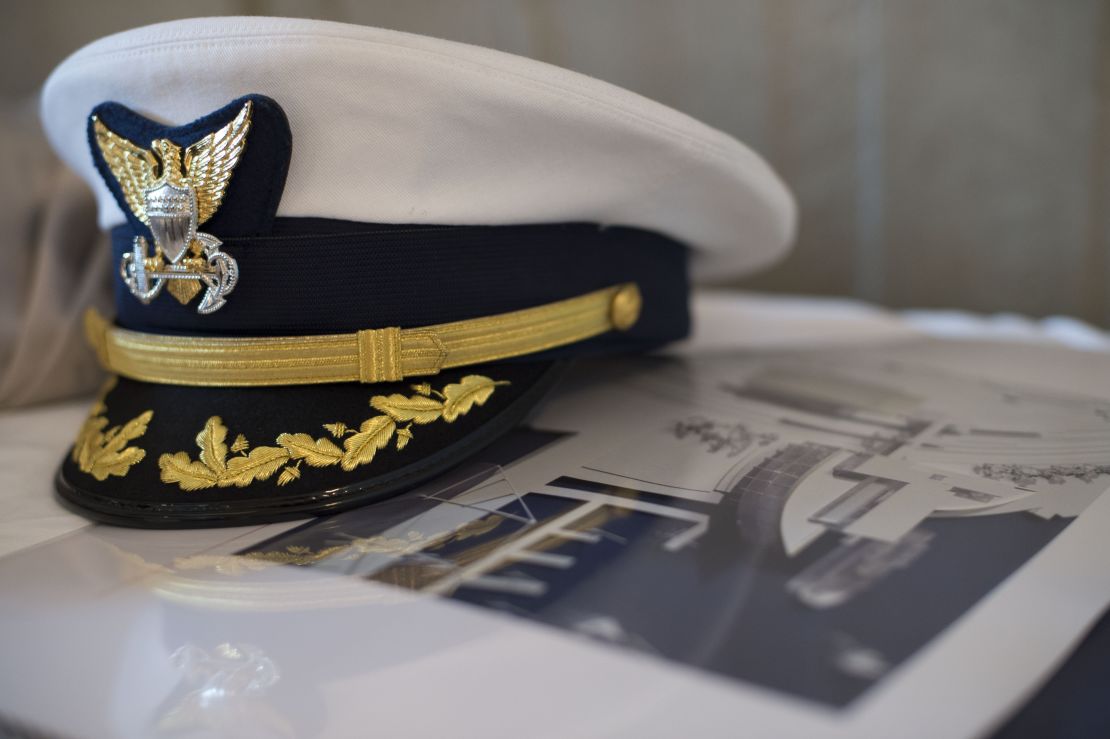
As they interviewed former students who had reported or witnessed abuses, they learned about others who had been too afraid to come forward at the time and attempted to track them down as well. The dozens of academy graduates they ended up revisiting were women, and some men, in their 30s, 40s and even 50s. They were now Coast Guard officers, veterans and mothers.
According to records, some expressed relief that someone was finally listening, and they were hopeful that their alleged perpetrators might be held accountable. Others wanted nothing to do with the investigation, saying it was too painful to revisit what had happened to them – both the initial attacks and the aftermath at the academy. Several said they feared for their safety, not knowing what their alleged attackers would do when they found out the allegations against them had resurfaced all these years later. One said she didn’t want her teen daughter to ever learn of what had happened. Another became upset at the mention of her alleged attacker’s name, with her husband later telling investigators that she was most upset about how her allegations had been handled by the academy and had struggled with depression and distrust of authority for decades since leaving.
From the records agents gathered and interviews they conducted, clear patterns emerged: Alleged victims were blamed for contributing to their assaults by drinking alcohol, or not resisting forcefully enough. Suspected perpetrators had their conduct minimized and excused.
Among the cases documented by the investigation:
- A female cadet who reported her classmate for allegedly raping her faced discipline for “engaging in lewd acts.” An academy official ruled that she did not protest her assailant’s advances strongly enough. “She did not willingly acquiesce to an act of sexual intercourse,” the official wrote, but she “did not reasonably manifest her lack of consent by taking such measures of resistance as were called for by the totality of the circumstances because she was confused, indecisive, lonely, naïve, and sexually inexperienced.” Her classmate was allowed to resign without further punishment. She left the school.
- A cadet accused of sneaking into a classmate’s room in the middle of the night, pinning her down and raping her, was allowed by the superintendent to remain at the academy as long as he completed alcohol rehabilitation, counseling and “human relations training.” The victim was punished for “fraternization” with a different classmate when the investigation uncovered her spending time in his room.
- Academy superintendents significantly minimized punishments for a number of alleged perpetrators, letting them drop out of school instead of facing more punitive outcomes. One superintendent, for example, rejected a recommendation to court martial a cadet accused of assaulting and harassing three female classmates, including the one who had rope marks on her wrists.
- Academy officials failed to pursue a criminal investigation against a cadet accused of raping two women even though they found that the alleged assailant had “displayed poor judgment” and had sexual intercourse with one of the women, a local college student, “without her consent.” While academy officials found that alleged victim “very credible” and “sincere,” they decided that the other accuser – who was an academy cadet – was not credible. She later left the school for medical reasons, with records citing “depression,” while the alleged rapist was kicked out of the academy, “disenrolled” for misconduct.
As part of the investigation, agents interviewed 20 people who had served as senior officials at the academy and had a hand in how the cases were investigated and resolved, though some key people had passed away, records show.
Ultimately, Fouled Anchor found that the academy’s leadership “did not adequately investigate allegations as serious criminal matters and hold perpetrators appropriately accountable,” according to the draft final report.
They “failed to take sufficient action to ensure a safe environment - particularly for female cadets - and failed to instill a culture intolerant of sexual misconduct,” the report stated about those at the helm in the 90s and early 2000s.
Despite such a damning conclusion, Fouled Anchor resulted in no punishments for those leaders.
“The ability to assign specific accountability was limited because none of these individuals remained subject to criminal or administrative actions, the evidence for the decisions made on these cases (most of which were over 20 years old) was incomplete, and the imprecise nature of the then-existing policies.”
As Fouled Anchor came to a close, agents were instructed to apologize to the alleged victims for how their cases had been handled previously and offer them support services. Records show some victims were upset with how Fouled Anchor reopened old wounds only to leave them angry that, once again, more couldn’t or wasn’t being done.
“There is no statute of limitations to my fear or pain…. I lost my career because of this assault. I will never know what my future could have been,” one woman wrote in a 2019 message to a Coast Guard admiral about the investigation. “I will never forget what happened to me and I will never be the person I could have been before this assault occurred.”
This story was updated to reflect a statement from the Coast Guard received after publication.
Were you interviewed as part of Fouled Anchor? Do you have information or a story to share about the Coast Guard Academy or Coast Guard past or present? Email melanie.hicken@cnn.com.
CNN’s Pamela Brown and Allison Gordon contributed to this report

